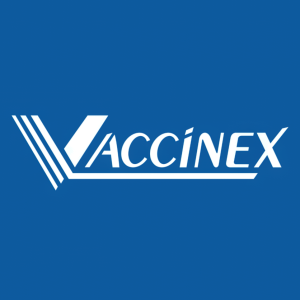Vaccinex to Report Promising New Clinical Results of Neoadjuvant Treatment with Pepinemab to Enhance Immunotherapy in Patients with Head and Neck Cancer at ASCO Annual Meeting
Rhea-AI Summary
Positive
- Pepinemab showed ability to enhance immune responses without adding toxicity
- Treatment demonstrated improved pathologic response in head and neck cancer patients
- Potential to transform 'cold' tumors into 'hot' immune centers, expanding market opportunity
- Could offer alternative to toxic chemotherapy/radiotherapy, improving quality of life
Negative
- Results are still in clinical stage, pending further validation
- Specific efficacy metrics and response rates not disclosed
- Limited to neoadjuvant setting currently
News Market Reaction – VCNX
On the day this news was published, VCNX gained 35.05%, reflecting a significant positive market reaction.
Data tracked by StockTitan Argus on the day of publication.
Neoadjuvant treatment with pepinemab appears to induce abundant, mature lymphoid structures that correlate with improved pathologic response.
ROCHESTER, N.Y., May 27, 2025 (GLOBE NEWSWIRE) -- Vaccinex, Inc. (Nasdaq: VCNX), a clinical-stage biotechnology company pioneering a differentiated approach to treating cancer and Alzheimer’s disease (AD) through the inhibition of Semaphorin 4D (SEMA4D), today announced that it will present new data characterizing the unique mechanism of pepinemab to enhance immune responses to checkpoint therapies in the neoadjuvant setting that are associated with improved pathologic response in patients with head and neck cancer. Lead investigator and collaborator, Conor Steuer, MD from Winship Cancer Center at Emory University, will present results at the 2025 Annual Meeting of Clinical Oncology (ASCO) in Chicago on June 1, 2025.
ASCO Conference Information:
| Date: | Sunday, June 1, 2025 |
| Presentation title: | Neoadjuvant biomarker trial of pepinemab to enhance nivolumab or ipilimumab activity in resectable head and neck cancer. Abstract 103. |
| Time: | 9:45-11:15 AM CST/10:45 AM – 12:15 PM EST. |
| Session Title: | Clinical Science Symposium – Turning “Cold” Tumors “Hot” |
Previously reported data from our collaboration with Emory University suggest a crucial role of pepinemab treatment in melanoma patients to facilitate immune cell interactions within highly organized and robust centers of immunity, called tertiary lymphoid structures, or TLS. By blocking the SEMA4D inhibitory signal to Dendritic Cells (DC), pepinemab allows productive, coordinated interactions between SEMA4D+ T cells, key effector cells capable of eradicating tumors, and DC, regulatory cells that promote immune cell interactions within TLS so as to amplify mature T cell responses.
New data presented at ASCO will characterize the mechanisms of neoadjuvant treatment with pepinemab in patients with resectable head and neck cancer (HNSCC). Standard of care for these patients often involves toxic chemotherapy and/or radiotherapy, in addition to surgery, which can significantly impact their quality of life. Peri-operative treatment with immunotherapy has recently reported promising and potentially practice-changing results. Certain HNSCC with hot beds of immune cells organized into TLS have been shown to correlate with clinical benefit and positive response to immune checkpoint therapy. However, many HNSCC are considered immunologically “cold” tumors, due to exclusion of immune cells from tumor and/or high levels of immune suppressor cells, making them resistant to immune checkpoint therapy.
Pepinemab has potential to be a major advance for HNSCC patients with cold and resistant disease, with capacity of a well-tolerated and effective treatment that can induce formation and harness the power of TLS to optimize the clinical benefit of immunotherapy. Our data demonstrate that the addition of pepinemab to neoadjuvant immune checkpoint treatments did not compound toxicities, yet it enhanced TLS maturity that correlated with improved pathologic response. Collectively, these results highlight the potential of pepinemab to turn immunologically cold tumors, such as HPV-negative head and neck cancer, into hot immune centers by inducing robust and mature TLS.
About Pepinemab
Pepinemab is a humanized IgG4 monoclonal antibody designed to block SEMA4D, which can otherwise bind to plexin-B1 receptors to trigger collapse of the actin cytoskeleton and lead to loss of homeostatic functions of dendritic cells in immune tissue and of astrocytes and other glial cells in the brain. Pepinemab appears to be well-tolerated with a favorable safety profile in multiple clinical trials in different cancer and neurological indications.
About Vaccinex Inc.
Vaccinex, Inc. is pioneering a differentiated approach to treating cancer and slowly progressive neurodegenerative diseases through the inhibition of semaphorin 4D (SEMA4D). The Company’s lead drug candidate, pepinemab, blocks SEMA4D, a potent biological effector that it believes prevents infiltration and activation of immune cells in tumors and triggers damaging inflammation in neurodegenerative diseases. In oncology, pepinemab is also being evaluated in combination with KEYTRUDA® in the Phase 1b/2 KEYNOTE-B84 study in recurrent or metastatic head and neck cancer (HNSCC) and in combination with BAVENCIO® in a Phase 1b/2 study in patients with metastatic pancreatic adenocarcinoma (PDAC). The oncology clinical program also includes several investigator-sponsored studies in solid tumors including breast cancer and melanoma. We believe pepinemab has also given promising results as a monotherapy in the Phase 1b/2 SIGNAL-AD study in Alzheimer’s Disease, and the Company has previously published promising Phase 2 data suggesting a slowing of cognitive decline in Huntington’s disease.
Vaccinex has global commercial and development rights to pepinemab and is the sponsor of the KEYNOTE-B84 study which is being performed in collaboration with Merck Sharp & Dohme Corp, a subsidiary of Merck and Co, Inc. Kenilworth, NJ, USA. Additional information about the study is available at: clinicaltrials.gov.
KEYTRUDA is a registered trademark of Merck Sharp & Dohme Corp., a subsidiary of Merck & Co. Inc., Kenilworth, NJ, USA. BAVENCIO®/avelumab is provided by Merck KGaA, Darmstadt, Germany, previously as part of an alliance between the healthcare business of Merck KGaA, Darmstadt, Germany and Pfizer.
Forward Looking Statements
To the extent that statements contained in this press release are not descriptions of historical facts regarding Vaccinex, Inc. (“Vaccinex,” “we,” “us,” or “our”), they are forward-looking statements reflecting management’s current beliefs and expectations. Such statements include, but are not limited to, statements about our plans, expectations and objectives with respect to the results and timing of the KEYNOTE-B84 and SIGNAL-AD clinical trials; the use and potential benefits of pepinemab in R/M HNSCC, lung cancer, metastatic pancreatic adenocarcinoma (PDAC) and other indications; the potential for benefits as compared to single agent KEYTRUDA® or BAVENCIO®; expectations with respect to the collaboration of Merck,; and other statements identified by words such as “anticipate,” “believe,” “plans,” “schedule,” “being,” “will,” “appears,” “expect,” “ongoing,” “potential,” “promising,” “suggest”, and similar expressions or their negatives (as well as other words and expressions referencing future events, conditions, or circumstances). Forward-looking statements involve substantial risks and uncertainties that could cause the outcome of our research and pre-clinical development programs, clinical development programs, future results, performance, or achievements to differ significantly from those expressed or implied by the forward-looking statements. Such risks and uncertainties include, among others, uncertainties inherent in the execution, cost and completion of preclinical studies and clinical trials, that interim and preliminary data may not be predictive of final results and does not ensure success in later clinical trials, uncertainties related to regulatory approval, risks related to our dependence on our lead product candidate pepinemab, and other matters that could affect our development plans or the commercial potential of our product candidates. Except as required by law, the Company assumes no obligation to update these forward-looking statements. For a further discussion of these and other factors that could cause future results to differ materially from any forward-looking statement, see the section titled “Risk Factors” in our previous reports filed with the Securities and Exchange Commission and the other risks and uncertainties described in the Company’s 2024 year-end Form 10-K filed with the SEC.

Investor Contact Elizabeth Evans, PhD Chief Operating Officer Senior Vice President, Vaccinex, Inc. (585) 271-2700 eevans@vaccinex.com







